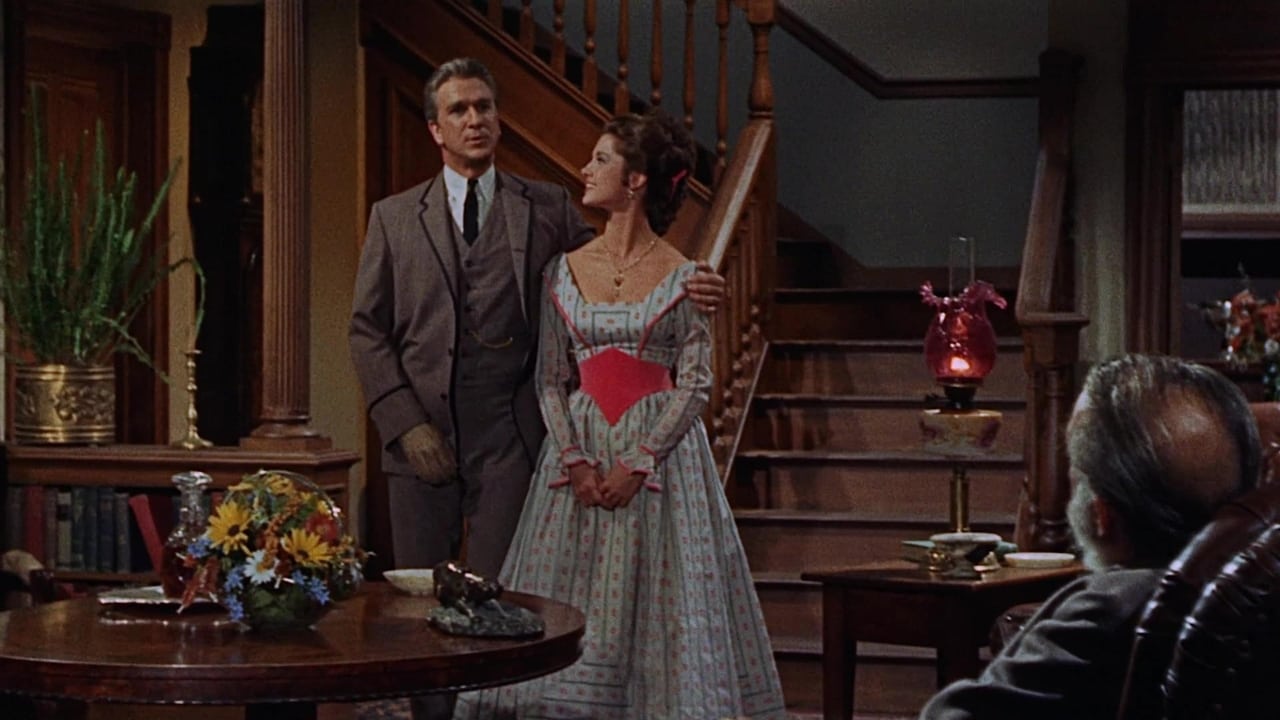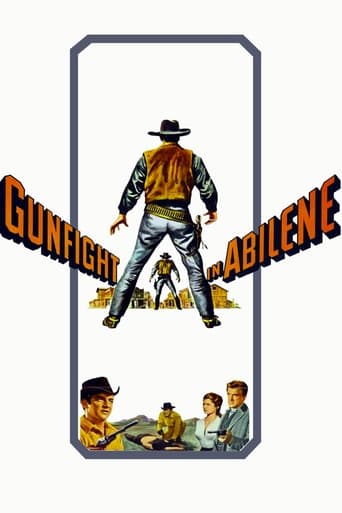



Sorry, this movie sucks
Perfect cast and a good story
Expected more
Boring, over-political, tech fuzed mess
Bobby Darin looks so goofy in this movie that seeing Leslie Nielsen as a grim and malevolent land baron makes this movie even funnier. Bobby Darin has a nice personality, but he looks 100% ethnic New Yorker, and I doubt he could ride a horse. This is not a bad movie, except that it does not make any sense. It is just the kind of movie that was put together and nobody bothered to check if the plot made any sense, or if the dialogue made any sense. Just a passable B movie. The horrible song, Amy, makes it even worse. The movie was all about Bobby Darin and his guilt over killing Nielsen's brother. The song is about Amy, who plays second fiddle to the broken friendship between Darin and Nielsen. Just another part of the story that is awkward.
View MoreOne of the hardest tests for an actor who is famous in other genres, like musicals is to make a western and come out well. So many tried and did not make it. Bobby Darin' performance in this film is quite an achievement. Darin himself was responsible for the musical soundtrack, which is excellent, specially the song "Amy". We have seen countless times the story of a man who goes to war and when he comes back sees his woman engaged to somebody else. Here we have the same story, but done with special care, due to the script and the fine acting of Emily Banks. The scenes where there is action are well made, you even see Darin kicking with his feet. He also wears his gun with the handle turned the other way around. The story is too predictable, but it has one uncommon element, which is the guilt feelings that dominate Darin making him behave in a strange way in relation to people that know him well. The director, William Hale was very well known for his work on television, and after the undeservedly bad reviews this film got, went back to it.
View MoreThough only 11 years had elapsed since the release of "Showdown at Abilene," Universal re-made this under the title "Gunfight in Abilene" with, surprisingly, Bobby Darin taking over the Jock Mahoney role. It's an unexpected casting which does not pay off since Darin seems out of place in a western and he's simply too small and modest to be the kind of tough lawman who could "clean up" a frontier town. In some scenes, he looks even shorter than leading lady, Emily Banks, and whereas Mahoney appeared on the balcony of the Abilene hotel gloriously bare-chested -- showing off his impressive physique but wearing his pants high enough to hide his navel -- Darin plays this same scene with his shirt on though open a bit at the top. (When Darin wakes up from a nightmare in a brief and dimly-lit scene, however, he's bare-chested whereas Mahoney, in a comparable scene, wears an undershirt.) On the plus side, Darin did contribute a song, "Amy," which is sung under the opening credits and which, though undistinguished, is pleasant enough and which today -- due to a decline in movie-song-writing quality -- might win an Oscar.The triangular relationship among Jock Mahoney, Lyle Bettger, and Martha Hyer which strengthened the original movie is still of interest here but one can't quite believe that Bobby Darin and Leslie Nielsen had once been close friends.Though this re-make follows the original quite closely, there are two notable changes. This version begins with a Civil War battle sequence showing Bobby Darin accidentally shooting a friend. Thus the audience knows from the start why the guilt-stricken Darin is reluctant to carry a gun when he returns to Abilene and why he feels he owes a debt to the dead friend's brother. When Darin later confesses the truth to Nielsen, his remarks lack the impact they had in the original version when the audience did NOT know what had happened back in the Civil War battle.The other change is also questionable. In the new version there's a young blonde woman in Abilene who has a crush on Darin and who pops up in a few scenes. This character does not appear in the original version and she adds nothing to the story.The re-make is superior to the original in two respects, however. Donnelly Rhodes makes a much more convincing "bad guy" than Ted de Corsia, and Michael Sarrazin's whipping is more effectively staged than Grant Williams' whipping in the 1956 version. Sarrazin is stripped of his shirt and subjected to more punishment and taunts than Williams who, for some inexplicable reason, is allowed to keep his shirt on while being flogged, even though he has a pleasing physique -- as was proved in "The Incredible Shrinking Man" -- and even though Universal had begun to groom him for his "hunk" appeal.Finally, all the character names from the 1956 version have been changed for the 1967 one.
View MoreBesides one other Western, Journey to Shiloh' (1968) and the obscure early effort Lonnie' (1963), William Hale has worked principally in TV since the start of his career. This is a shame as from the evidence of Gunfight in Abeline' at least, he is able to work comfortably in a major genre with none of the small screen inhibitions which seems to affect directors who cross over.The present film was received indifferently by critics upon its first appearance and it is hard to see why. While no masterpiece, it is a solid, engaging piece of work, offering Darin one of his finest and most dramatic roles. When one remembers the dull screen impression made by his nearest equivalent in Westerns, that of Audie Murphy (another actor who died relatively young), Darin's considerably more interesting screen persona seems to have been badly wasted. Add to his acting abilities as a vocalist and songwriter - as evidenced by the memorable ballad Amy' over which the credits of this film play out Darin's versatility is very interesting. In fact he was briefly marketed by the ever hopeful studio as the "new Sinatra".In Abeline' Darin plays Cal Wayne, a man haunted by two accidents: that of the injury of Grant Evers' arm when they where children, and of the death of Evers' brother during a skirmish during the Civil War. Evers' arm is a constant reminder of Wayne's incipient guilt, as well as suggesting the cattle magnate's unfeeling morality. But Evers is no simple black hearted villain. He has behaved with perfect honour towards his intended bride Amy and, although a ruthless businessman, initially at least strives to avoid confrontation and violence with the farming lobby. Far more reprehensible is his henchman Jack Slade, and the mutual distaste between the two is always evident. (The difference is particularly noteworthy when Slade upbraids Evers for his weakness in paying compensation to the farmers for his early trespassing and crop destruction.) Even Evers' final act of violence towards Wayne is one generated through impulsiveness, as the now-sherriff confesses how he killed his employer's brother.Abeline' builds a compact and satisfying Western drama, albeit small-scale, around the Wayne-Amy-Evers-Slade relationships, and Hale's widescreen compositions, his dollying and tracking are very effective without drawing attention to themselves. Most noticeable is the final showdown. Here he employs some off-centred camera angles to frame the boastful Slade, while the montage of facial shots accompanying the ultimate draw anticipates some of the flamboyance of Leone.This is a film which is entirely successful in its own rewarding and modest terms, and only fails being memorable by an absence of more colourful supporting actors. Neilsen too (acting straight here, long before the days of 'Airplane!')lacks a certain charisma and some of the film comes across as being slightly glum. If Hale had been able to add a Brennan or a Devine into the mix, them the results could have been marvellous. Instead we have a Western drama well worth seeking out, as a traditional, effective genre outing.
View More